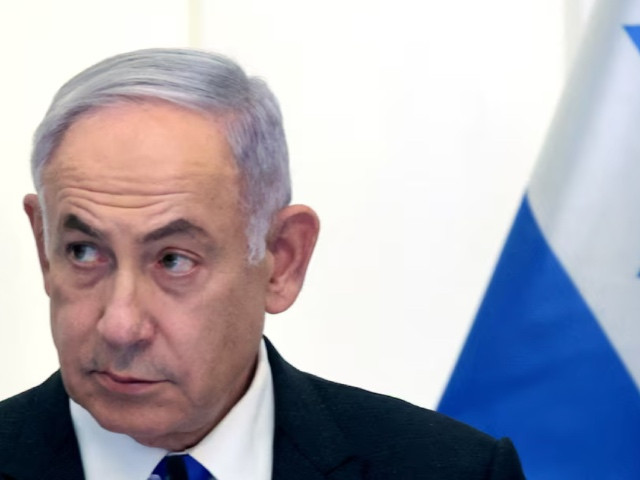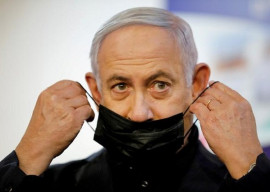
Israeli Prime Minister Benjamin Netanyahu emphasized Wednesday what he called Israel’s “red lines” during a meeting with US Special Envoy for the Middle East Brett McGurk to discuss a Gaza cease-fire and prisoner swap with Hamas.
“Regarding the negotiations, the Prime Minister emphasized his commitment to a deal as long as Israel's red lines are preserved,” Netanyahu’s office said in a statement.
The statement said the two sides reviewed “regional issues,” without providing further details.
Earlier this week, Netanyahu outlined four key red lines for any prisoner swap deal with Hamas, saying any agreement must allow Israel to resume military operations until all war objectives are met. He said any deal must prohibit the smuggling of weapons into Gaza from Egypt, prevent the return of thousands of gunmen to northern Gaza and maximize the number of live hostages released from Hamas captivity.
Critics, including opposition leader Yair Lapid, have raised concerns about these conditions, viewing them as potential obstacles to successful negotiations.
Netanyahu’s statement came as a high-level Israeli delegation arrived in Doha to attend a four-party meeting with the participation of representatives from Qatar, Egypt and the US.
The meeting aims to facilitate indirect negotiations between Israel and Hamas to reach a prisoner exchange and a cessation of hostilities in Gaza.
Despite months of mediation efforts, progress has been elusive due to Israel’s unwavering stance, backed by US support. Netanyahu’s refusal to fully comply with Hamas’ demands for a comprehensive cease-fire has complicated the path toward an agreement.
Flouting a UN Security Council resolution demanding an immediate cease-fire, Israel has faced international condemnation amid its continued brutal offensive on Gaza since an Oct. 7, 2023 attack by Palestinian group Hamas.
Nearly 38,300 Palestinians have since been killed, mostly women and children, and over 88,200 others injured, according to local health authorities.
Nine months into the Israeli war, vast tracts of Gaza lie in ruins amid a crippling blockade of food, clean water, and medicine.
Israel stands accused of genocide at the International Court of Justice, whose latest ruling ordered it to immediately halt its military operation in the southern city of Rafah, where over a million Palestinians had sought refuge from the war before it was invaded on May 6.


1731574647-0/BeFunky-collage-(58)1731574647-0-165x106.webp)
1731573461-0/BeFunky-collage-(57)1731573461-0-165x106.webp)
1722585575-0/BeFunky-collage-(22)1722585575-0-165x106.webp)
1731577079-0/Untitled-design-(9)1731577079-0-270x192.webp)
1731571819-0/Copy-of-Untitled-(40)1731571819-0-270x192.webp)


1731565696-0/Untitled-design-(6)1731565696-0-270x192.webp)










COMMENTS
Comments are moderated and generally will be posted if they are on-topic and not abusive.
For more information, please see our Comments FAQ